As an amateur scholar and die-hard enthusiast of everything to do with Alice in Wonderland, I have launched a podcast that takes on Alice’s everlasting influence on pop culture. As an author who draws on Lewis Carroll’s iconic masterpiece for my Looking Glass Wars universe, I’m well acquainted with the process of dipping into Wonderland for inspiration.
The journey has brought me into contact with a fantastic community of artists and creators from all walks of life—and this podcast will be the platform where we come together to answer the fascinating question: “What is it about Alice?”
For this episode, it was my great pleasure to have the hilarious and talented Jake Curtis join me as my guest! Read on to explore our conversation and check out the whole series on your favorite podcasting platform to listen to the full interview.
Frank Beddor
Welcome to All Things Alice Jake Curtis. I'm interested in your creative journey as a young writer and how one comes to their creative process and aspirations. Where did it all start in terms of writing? Were you someone who loved to write in school?
Jake Curtis
I've pretty much always done some kind of performance thing. I come from a big family of writers and artists who are all too loud for their own good. So growing up, you had to learn to talk fast and talk loud.
FB
Was that at the dinner table? Or was that all the time?
JC
Twenty-four seven. We used to say that everyone was unconditionally loved, but not everyone was unconditionally liked.
I came to performing and writing from improv actually. I started doing a lot of improvised comedy when I was 12-13 and it was huge for me because I'm quite an anxious person in general. I’m an analytical person. So the chaos and acceptance that has to come with improv was pretty huge for me. There's no second draft. There's no planning.
FB
There's no getting out of it. I thought improv was the most terrifying concept I'd ever heard of. I'm not going to get up on stage and then somebody's going to tell me some little story and I'm supposed to go from there. I admire the chutzpah at 12. But I suppose at 12 it's like sink or swim. So much stuff is going on at that age.
JC
I was a big lover of live comedy shows. England, especially then, had a really vibrant live comedy scene. Going up to the Edinburgh Fringe at young ages, you see all these shows, and at first, I became obsessed with the idea of an audience. I think that was always the bit that gripped me. It's not so much the glitz and glamor of a million followers, but it was getting to watch these people who can walk into a room with 20 people and just connect with them and entertain them for an hour. I've always approached writing from an entertainer's perspective. We're all dancing monkeys making something fun. So I did improv for years and it excited me and I got to go around the world and do shows in Canada and the US.
FB
So there was something more structured than you getting up there as a young person and doing something in front of the class. Were you part of a troupe?
JC
I was part of a troupe called School of Comedy, which is an amazing company in the UK that gets professional sketch writers to come in, but then they have a troupe of kids to perform the sketches. We did shows up in Edinburgh for two years we would perform around the country at festivals and comedy gigs. That was an amazing experience because we were very much treated like we were a part of a professional show. Like we were an asset and a commodity and a member of the troupe. They were lovely and respectful. But also it was like, you have an expectation. There are people out there who have come to see a show and you are the people to deliver it.

FB
How many shows would you do a day?
JC
When we went up to Edinburgh, we would do a show every day for 30 days or for 21 days, which is the length of the Fringe. You're on a full run there. Then, generally, you'd have a week with a couple of shows or a little run at some theater and then a couple of months without a show. But we were working and it gave you this idea of having to accept how the audience reacts. I think a lot of writing classes and creative media share the message of “Oh, you've got to tell the story that's yours. You've got to find your soul or your calling.” That’s wonderful and people need to be told that, but I think it does sometimes remove the audience from the question. It tells you to find the thing you think is funny, but I love performing to live crowds because you're reminded even if you think it's funny, it doesn't really matter that much if they don't. We’d go into shows where we had sketches that had been written for us and that killed five shows in the last five shows. But you deliver it and the crowd doesn't like it. You can either just say, “Well, this is my schedule and I'm gonna keep going,” or you can try and change it on the spot, try and work out what this crowd needs from you and the show.
FB
Obviously, when it's going well, it fuels you and you can charge ahead and you will take chances and it's invigorating. When there's a lull or you feel like the audience's leaning back and they're not engaged, for me, I had a sense of panic when I was doing some plays. I went, “Oh, it's one of those.” I would get into my head on the negative side and trying to find a way out of that into the next moment and being present was difficult.
JC
I've done shows that have bombed and kept bombing. Sometimes you're in the mud and you've got to stay there. In those shows, I would just try and make as much eye contact with the people on stage as I could. You don't have to look at the crowd, right? And I’d try and tell myself, “I'm here having a good time with my friend, not bombing and ruining these people's night.” But generally, with the crowd, I always took that as a challenge and it's a challenge you can win. Especially with comedy shows, people want to come out and have a good evening. Now working as a writer, all these decisions you make are fueled by “We think these markets might want a script that looks like this.” I hate all of that because it's not real. You're like, “Oh, maybe I can do it. I'm a technician.” But when you have a crowd, it's you and them. It's head-to-head. My panic mode was usually monologuing. If I'm getting stressed, I'm just gonna keep talking and I'm gonna keep going until I hit something. I'm gonna move faster. I'm gonna go through more ideas until you find a little inkling of a laugh and then just grip onto that for dear life.
FB
Is that what you did with your family? Is that what the competition was, people gripping on for their lives to find a little kernel to be heard?
JC
One hundred percent. You’re waiting at the dinner table like, “Come on. Someone mention dog. Someone mention dog.” Someone brings up the word dog and you’re like, “That's interesting! Listen to what happened to me today. I went out and I met three dogs.” You’ve got to take your time when you have it.
FB
Wow, that must have been hard to even get the food and drink down. That’s a diet in itself.
JC
When someone else starts monologuing, you speed eat. I just loved the immediacy of improv and the presentness and the engagement. For me, the joy of making art is making it for a specific person or specific people.
FB
You were making art in that moment. There wasn't a committee telling you, “I think this joke will work or that joke will work”. The audience is telling you instantaneously, which you don't get when you're writing a script for television. That’s amazing because you're basically writing on stage as you're going.
JC
It forces you to engage in the truthful fact that the majority of art is just people observing other people and enjoying it. There's this top tier of if you can write a sentence so good it is etched into history. If you're gonna write “to be or not to be,” go for it. But the majority of art isn't the cleverest thing you've ever heard. It's some people watching, reading, whatever, some other people and trying to enjoy it, trying to have a good time.
FB
It’s the connection to the human experience which is why it's interesting you're describing your family because so many stories are about the dynamic of family and it's very relatable. So when you tap into something like that you're going to engage the audience in a meaningful way. Your family dynamic sounds really exciting and really competitive and that set you up with the mindset of “I'm being creative all the time, not just when I’m improvising. But my whole family is creative.” Did you have actors in the family? You said writers?
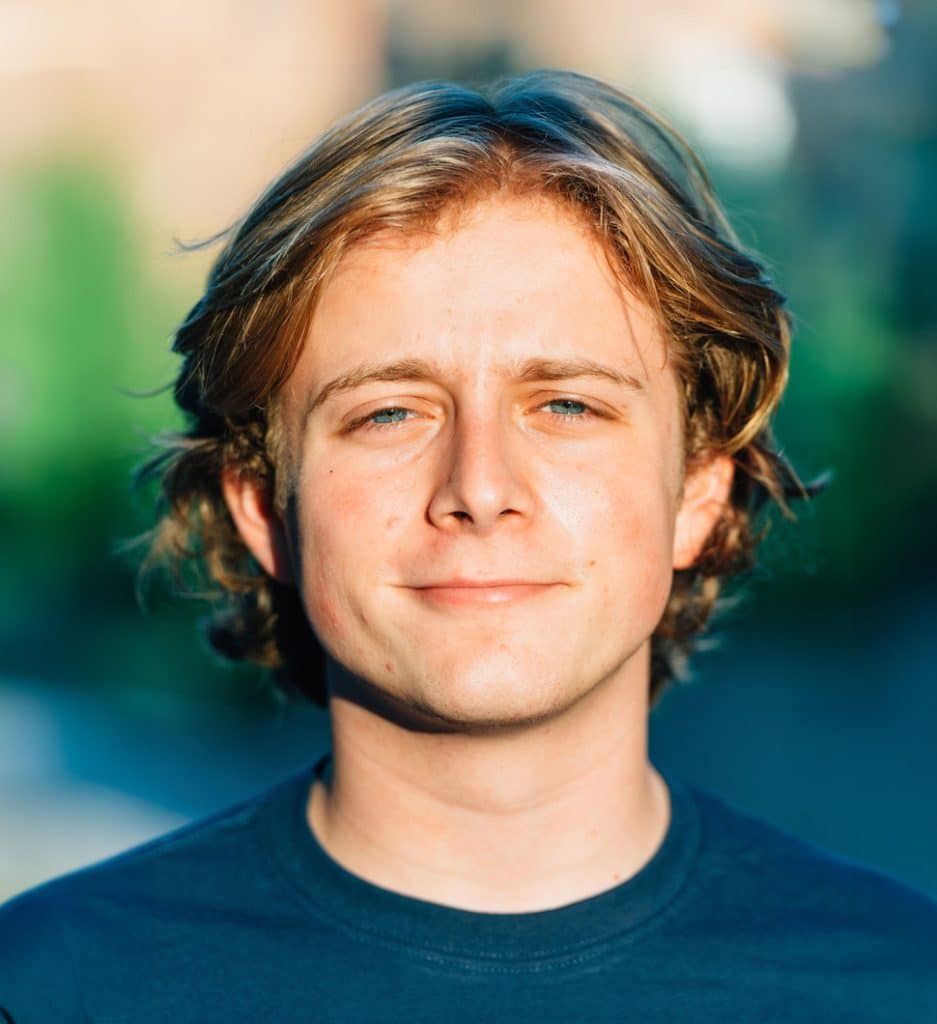
JC
In the immediate family, we have a lot of writers. My sister's a writer, my dad's a writer, my little brother's a writer. My mum was a TV presenter in the 80s, which was cool. She used to do little practice things like she’d be playing songs in the car and, in between them, she'd be like, “Okay, you could introduce this one.” I'd have to be like, “And this next song coming on is a smooth hit from Lionel Richie,” and try to time it to the intro to the song. It was all just fun. Then in the extended family, they're also very loud. I have like 30 cousins on my mom's side and we have actors, we have everything. It was just a general feeling of trying to have fun trying to push yourself. I thought if I was going to be able to make a career in the arts, it would be partly from muscle growth. How many reps can I do? How many different art forms? I spent so long doing comedy sketches, I don't do those anymore, but the experience all of it filters into everything else I do.
FB
Is comedy the genre you've started to really hone is comedy, whether it's television or film?
JC
Comedy is definitely where I lean. That was where all my experience came from in improv. I think these things are muscles, especially comedy. I think people often underestimate how much of a muscle comedy is because people are so naturally funny. But it is a very different thing, being funny to four friends than writing something that can slot into a specific scene in a specific script.
FB
It's completely different. When you're with your friends and you're saying it out loud, it can come or go. But when you write it down, people can judge the rhythm and the cadence of it. Somebody's got to perform it to really nail that cadence. It’s a lot different putting it on.
JC
I sometimes hear writers, who are great writers but haven't done comedy, saying, I think I might, for my next script, just do a comedy.” That's great and maybe it'll be amazing but I think the reason I'm good at comedy is, I hope, twenty percent something natural in me but I did a hundred appalling improv shows before doing a hundred mediocre improv shows before doing fifty decent ones. I have so many scripts that are so bad and so unfunny, so many files on my phone, stand-up gigs, improv, and freestyling. This is the thing I've done the most and I'm still mediocre to okay.
FB
It's the 10,000 hours. It's the failing over and over. I don't know if people realize what a gift that is, as the learning part of the process. When you talk about great comedians and you see their shows, if you see multiple shows, they are so specific night after night. They're hitting every one of those beats. They're so worked out. It's kind of remarkable how specific they are from performance to performance.
JC
That was a part of why I felt so lucky getting into comedy so early and the fact that my family did treat it as a serious pursuit. I was able to go through a lot of that education and a learning phase while I was at school. Because I think it can be really daunting if you go through life and you hit 24-25 and you go, “Oh, maybe I want to do comedy.” It's a six-year path to being kind of fine.
FB
Starting at 12 and starting to perform, it's not dissimilar to sports. If you do it at a young age, it's so inherent by the time you get to your late teens. It’s instinctual but you need all those reps. Starting that young, the filters are off and so you're just doing it. It’s not as if you're 24 and you want to do comedy for your career and you wonder how that's gonna work out. I think that makes a big difference. With your family being so into all the arts, did you find that to be really nurturing or is there a competitiveness or an expectation you feel moving forward?
JC
Not so much. There's a competitiveness in my family anyway. I'm one of four kids and we all do very fairly similar things so there's a bit of a jostling. But no, I think it was very much, “If this is a path you want to go down, go down it.” Me and my siblings do similar stuff but it's different. My sister writes incredible feminist literature I couldn't write and my little brother writes very dark, edgy films I also couldn't write. It wasn't as much of competitiveness but it was more of “This is a legitimate career and a path you can take. If you're gonna go down it, take it seriously and put in work, put in the hours. We will drive you to the classes and pick you up but you've got to put your practice in and put your head down.” It wasn't treated as a fanciful thing.
FB
With a lot of creatives, the family or the parents treat it as a fanciful idea and not dependable.
JC
I remember one time when I was 16 we had these national tests and I did really well on the physics one and I suddenly got this brain wave of, “Wait a second, could I be an engineer?” I was like, “Oh my god, this is a radical thought. A steady paying job, career development.”
FB
Nothing like my family.
JC
I’d become the black sheep.
FB
You're working for Intel.
JC
It would be bizarre for them. It was always something I just appreciated and kept going and kept trying to see where I could go. I did a lot of improv. I got to do some shows I loved. I got to do two 50-hour-long shows in Canada with the group Die-Nasty, which was a great experience. It was really COVID that ended that portion of my life. I was already writing a lot by then but when COVID happened all improv obviously shut down. More than most industries improv took a really big hit. It turned out the improv theaters weren’t the people with big financial stores and genius financial skills. So improv took a really hard hit there. Then I just dove fully into writing. I've always enjoyed performing as an act for myself, but needing to get my face out there was never a priority. So I really tried to dedicate myself to screenwriting as a way of building a career I would enjoy.
FB
Why did you move from the UK to the US? Was that for educational or opportunity reasons?
JC
I was living in the UK until I was 19 and then I moved to Chicago to go to Northwestern University and study film there. I made the decision entirely based on improv. In the UK, I was doing what is known as Chicago-style improv, which is long form. Chicago is the mecca of that with Second City and the iO. So I Googled best colleges for improv and some dudes' blogs came up and at number one he had Northwestern and the Titanic Players. I went great. I applied to two schools. I applied to Northwestern and then I applied to Yale because no one in England had heard of Northwestern. So I thought, “If I can get into Yale and reject them, then I'll tell people I chose Northwest.” Then Yale rejected me so it wasn't a great plan. But yeah, I went for the improv and it honestly was amazing. I was in this group, the Titanic Players, run by Mike Abdelsayed. It’s an amazing, incredible organization. I got to do so much improv at Northwestern. It wasn't the worst decision.
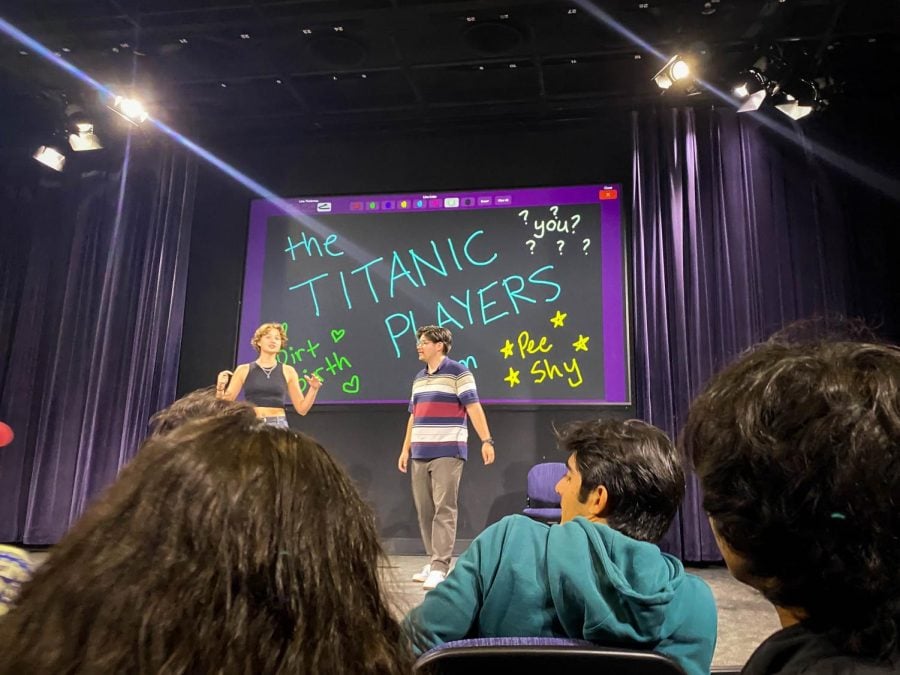
FB
Then you had the city so you could go to Second City and you could see some of the best improv in the country. You were getting your fix for sure.
JC
A hundred percent. I go to do shows downtown and they brought in guest improvisers to teach workshops. It was an amazing experience.
FB
Also, it's a great city when you're twenty-one years old.
JC
I don't regret the decision at all. I love Chicago so much. Oddly enough, of everywhere in America I've been it's the place that most reminds me of London. So I felt quite at home there. Lovely people, lovely food, and some of the best improv in the world.
FB
Who were some of the people that inspired you in terms of your comedy?
JC
The first people were a lot of English comedians and stand-ups that I doubt people listening to this podcast have heard of but there are people like Daniel Kitson and Tim Key. These incredible people who would just do one-person shows at the Edinburgh Fringe. Partly due to the financial situation, one person shows basically dominate and it's amazing because it’s so personal. I love these very personal stand-up shows. Moving to Chicago, TJ Jagodowski and Dave Pasquesi are like the greatest duo in Chicago improv history. They've been doing the same show for 35 years. They are genuine masters and are so grounded and confident and know each other so well. But honestly, my biggest inspiration was watching American sitcoms. That was kind of why I wanted to come to America. I grew up watching The Office, Parks and Rec, and How I Met Your Mother. All these shows. For one, they’re so phenomenal and they also made America seem so cool. I was like, “This is great. I'm just gonna go to America and meet all these beautiful people and date them. It'll be great and everyone's funny and the sun's always shining.”
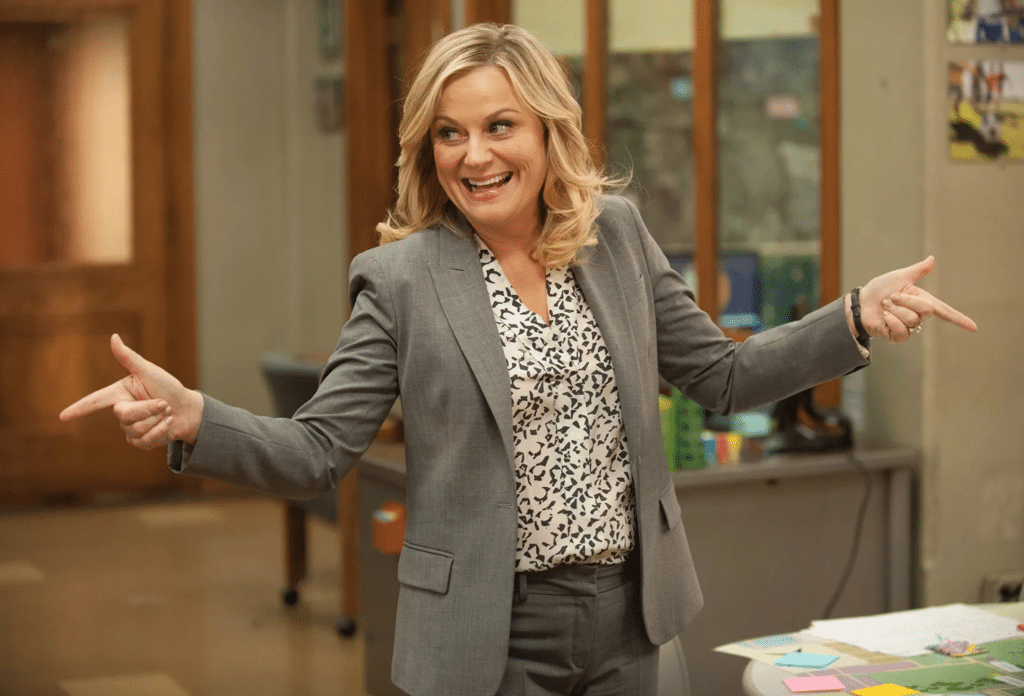
FB
Did you discover that?
JC
I discovered it was exactly like that. I have not been sad a day since I arrived in America. No, it turns out they're a little unrealistic at points.
FB
So moving to LA, what was the transition here?
JC
So COVID happened and I was in Chicago and I started writing more. I only had a year left on my visa and I didn't know if I could stay in the country. So I thought, “If I have a year, I should go to LA, the ‘City of Dreams.’” So I moved to LA and I got a job working for a motivational speaker, which was a weird experience, especially during COVID.
FB
Why was that weird?
JC
There was a point where I was locked down in my house and seeing no one. Except once a week, I would drive to this guy's house, set up a camera, and he would motivationally speak at me for one or two hours. All of his stuff is just down the lens of the camera so I was going from total solitude to this man rambling about the meaning of life, and passion and purpose. Then I was going back to my tiny, empty house, and editing more videos of him talking about the stuff. It was just a bit of a jarring experience, but a wonderful one.
FB
Did any of it stick for you?
JC
It definitely got in there. It's definitely deep in my subconscious. I can still hear his voice if I close my eyes. But I was doing that for a year and then I was working on my writing, but I felt like I needed more training, especially because so much of my experience had been in performance and live comedy. So I ended up applying to grad schools to do a master's in Screenwriting. I got into the American Film Institute, and ended up going there, and that was one of the best decisions I've ever made.
FB
How was Ed Decter? He introduced us and having him as a professor, what was the takeaway, the one thing you have been able to put into action?
JC
Two things come to mind. Because I think the first, which was something I really loved from watching Ed, was where you can get to if you put all this time into screenwriting. I had so many examples of these great improvisers I'd seen who have this, it seems like a superhuman ability to improvise. You drop them in a scene and they know where to take it and where to go. It was seeing those people initially that made me want to do improv. I think it was amazing coming to AFI, all the professors who teach there have to also be working writers in LA. Ed Decter, who I was lucky to get in my second year, is a very prolific writer and has written so much stuff in so many genres. We were a class of six writing six very different scripts and watching him have immediate feedback for every single type of script, which ninety-nine percent of the time was immediately correct, was an amazing thing to see.
We talk about scripts so often like they’re hyper-personal, the story only you could tell, but if you get a really good screenwriter they know the direction a script should go from reading it. Getting to see that up close and getting to see someone be able to latch on to a story someone's trying to tell, work out the key elements, work out what's going to translate, work out what's not translating, and immediately know a direction to go in. That got me excited and inspired because I think it can be depressing as a writer to think your only option for success is writing your soul's calling. That's wonderful. I hope to one day write a film that is me in a bottle but that's a scary prospect. Going to AFI gave me much more of an approach to what a working writer looks like, of what a functional writer looks like, of someone who just gets the job done and who knows what a script needs.
FB
Ed has written a lot of sitcoms. That's where he started. So he has experience in sitcoms but the scripts he's been writing lately have been adaptations of various kinds of mystery novels. He has a broad range of genres that he plays in. A couple of the latest crime dramas he's written were really startling to me, because, we obviously did There’s Something About Mary together, but also he's done so many sitcoms. So I can understand why you guys would have bonded. Also the experience of seeing him jump from genre to genre and script to script, I had a similar experience. We put a little mini-room together that he ran to break The Looking Glass Wars novels as a television show. Seeing him run the room was also another aspect of television production, writing, and development that I hadn't seen before. That was unique for me because I hadn't had that experience of taking my novel, breaking it up, and saying, “Okay, here's where we have to get to for the middle of the season. Here’s where we're trying to get to at the end of this season. Okay, now, let's reverse engineer it and figure out the best opening.” It was pretty exciting.
It was not dissimilar to what you did with my world. I asked you to write a lore story and this idea came from you and a number of other young writers that I was introduced to from AFI, who play all these different kinds of games, Dungeons and Dragons and Magic: The Gathering. I looked at all the lore stories that go along with those games and I thought, “Well, I want that.” So you wrote this story, The Brother’s Wilde, which I'd like you to talk about. It’s a lore story, a prose short story. You did an outstanding job. Really brilliant, beautiful job. You used aspects of my universe and you made them feel fresh to me, which was like Santa Claus showing up.
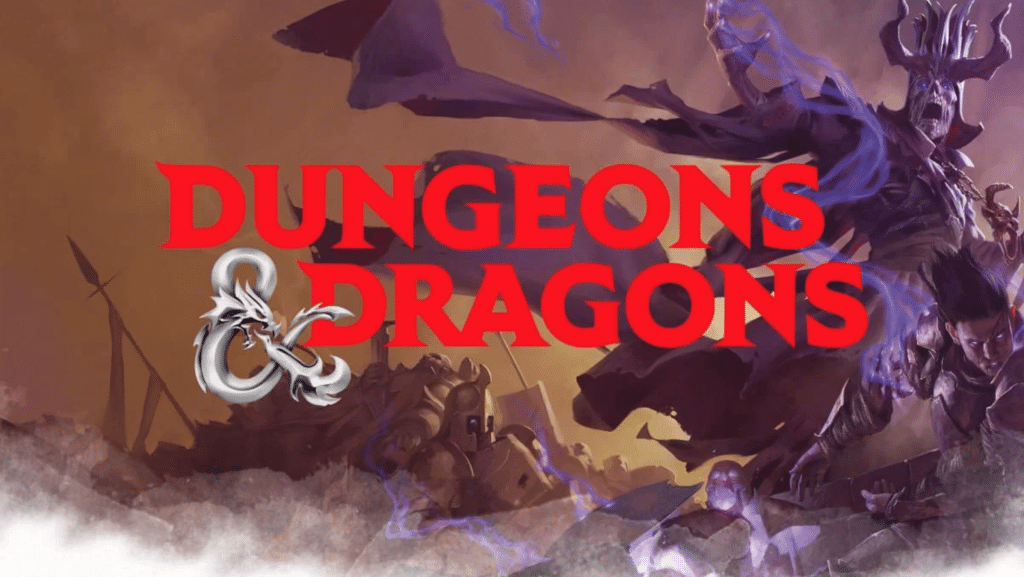
JC
It was a wonderful experience for me because I've played a lot of Dungeons and Dragons for a long time. I love that world and the high fantasy genre, but it never felt like something I was allowed to play in for actual creative work. That was my treat on the side at the end of a long week. So getting approached to write something in a world of high fantasy that already exists and writing backstories was such a treat for me. It felt like getting to my fun times for work. But it was also an odd process. I've never really written based on other people's worlds before and other people's work. So that was interesting and fun getting into that and trying to see how much I could stretch. The odd thing for me was when I got into it, I was very excited. I'd written out all these plot points and the beats and I was confident in the story. Then literally as I opened up the Word document, I remembered I hadn't written prose in like seven years.
FB
Be careful what you wish for.
JC
I’d forgotten it was a completely different art form. I got ready to open up Final Draft and then I was like, “Oh God!” It took a little bit of adjusting. The part I forgot was you can't refer to someone by the same name every time in prose. In the script, someone is their name and it does not change ever. But I was suddenly deep on synonym.com, “I can't say ‘the great warrior’ again”. The mighty fighter, heroic hero, I was going deep into my vocabulary to try and switch something up. It was an exciting thing to get to work on. I think especially because Alice is a world that is so rich throughout culture. It’s kind of a bedrock piece of story. There are things I brought into the story that are pieces from Dungeons and Dragons. There's a lot of Alice in Wonderland lore baked into Dungeons and Dragons like Vorpal swords and Jabberwock. It didn't feel like building on something completely new. It felt like being given a chance to play in a world that is so familiar.
FB
As a Brit too, Alice in Wonderland is probably the most famous piece of literature that you would have grown up with, right? So I can understand that and also the idea that Alice is everywhere. Of course, it makes sense it's in Dungeons and Dragons. You took what was familiar from Alice's Adventures, Lewis Carroll's work, you took elements from my world, but then you brought this brother story together. Tell us a little bit about that part of the story, because you did often reference your younger brother.
JC
I have two younger brothers who got amalgamated in the story. I always try to start from a place of relationship because I think that gives you the most fuel for a story and is the part you can’t retroactively put in. If you tell me this story needs a bigger fight scene, I can go do that at the end. But if a story isn't built around a relationship, it's tough to slot it in. So I wanted to build The Brother’s Wilde around a relationship. I was looking at the House of Cards, which was where we wanted to focus the story, and I thought brotherhood made sense. It’s this military organization and the brotherly bond felt like it made sense. I have two brothers who I fight with a lot. So that made that track.
But then I was interested in this idea of the houses and I loved the thoughts of the personality types associated with the houses. Me and my brothers are very different and if we're gonna have two brothers in the story, let's put them in two different houses. Let's have them hate each other for the very reasons that make them unique. If we're trying to expand the House of Cards we've got to bake it into the DNA of the House of Cards. So I wanted to build around there. Then I came up with these characters who are half brothers from a philandering father, who they both hate and there’s no love between them. At that point, it started to feel real to me and it started to feel fun. It felt like playing because you built this world and we have this amazing world of the House of Cards which has these rituals and dynamics built in. It was such a gift to build these two brothers who hate each other and try to give them a situation to learn why they need each other.
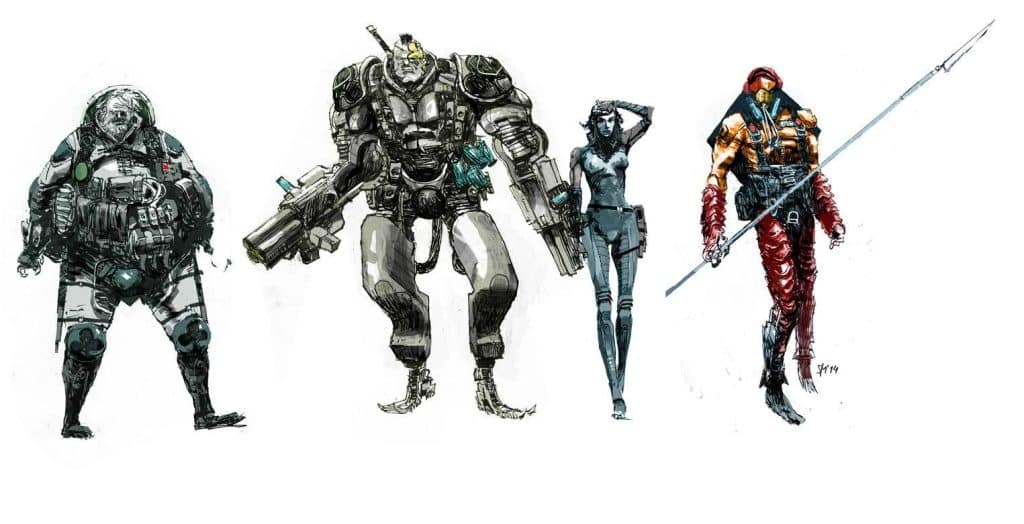
FB
You were tasked with an origin story, an early origin story of the House of Cards. They send card soldiers on missions and when they send people on missions, they decide what kind of hand they're going to deal. So you came up with the idea of “A Hand in History.” The Brothers Wilde is the beginning of the card soldiers going on these various missions when they're tasked with saving the queendom or battling a competitive state.
JC
I loved the idea of basing it around hands that are chosen and selected because that plays into the joy of Dungeons and Dragons and these old fantasy novels. It’s the idea of “The Party,” the troop. Every story is based around who was selected to go on this journey. That's what's so beautiful in a lot of these adventure stories, including Alice in Wonderland, it's not the adventure that's enticing, but it's the uniqueness of who's gonna solve the adventure.
FB
The skill set they have and seeing how they're challenged when they use their skill set with these various obstacles. That’s the Dirty Dozen idea.
JC
I think that's where a lot of modern fantasy and films go wrong. They put a lot of their energy into these big set pieces, these big boss fights with CGI characters. They put a lot of time into the obstacles when actually the thing we care about is the people solving them. In The Lord of the Rings, you care about Frodo, you don't care that there are nine Nazgul. That's what makes Alice in Wonderland so beautiful, and your novels, they revolve around the people going through them instead of the giant nature of the battle.
FB
It’s fantasy but you need to be with the characters and with Alice, it's so identifiable. It’s a “Who am I?” journey, and she finds agency in who she is and pushes back against the illogical world that she finds herself in. But it's also very amusing. When were you introduced to Alice's Adventures in Wonderland?
JC
I couldn't say an individual date because, especially in England, it was just a part of culture growing up. My earliest memories were of my mum and my dad reading me the book. I must have been 10 or 11. The 1951 film was something I watched a lot. I love animation. I write a lot of animated stuff. The specificity of the visuals and the tone baked into that film was a real inspiration for me growing up.
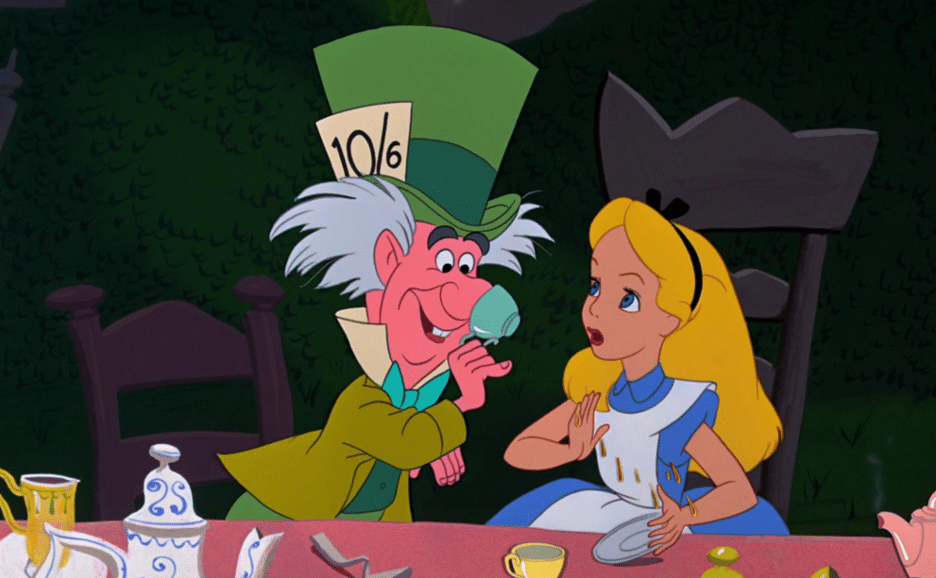
FB
Why do you think it's lasted so long? You said it was in culture and this is generations after it was first introduced. Every generation re-interprets Alice. How do you view Alice in Wonderland?
JC
I think the reason it has lasted is there are so many ways you can connect with it. It is such a beautiful human idea, the girl who falls through the looking glass and gets swept away on an adventure. The part I really gripped on to from a young age was the world-building. It was the idea of this world that works, that makes sense. It doesn't feel like someone who's picked, “Oh, this would be a fun scene. This is a fun character. That would look good.”
It lives and breathes like a world. Something that really drew me to it is I think a lot of world-building goes dark, “It's a grungy forest with scary people in it.” Then obviously some other world-building goes saccharine and we're in heaven. I love the feeling in Alice that there's a danger to the world but there's a wonder to it as well. There's a whimsy and a seriousness. The world feels like it shifts based on the situation, like ours does. There's no one thing to it. I just love learning more about the world, learning about the characters who inhabit it, the places to go, and being able to build this kind of escape.
FB
I love the whimsy and the silliness of it and it reminded me of another book, The Phantom Tollbooth, which was one of my favorites growing up because of the silliness and the use of language. I really identified with that aspect of Alice. Many people think of it more as more a nightmare because of getting big and small and being stuck in a place where there's no logic.
JC
The lack of logic, I love. I know quite a lot of people who I would identify as crazy people. They would as well. We have a lot of fun mental health issues in our family. I always grew up with this acceptance that nothing's gone wrong. There are crazy people who exist in the world and that's fine. I think Alice, in a youthful way, takes that on the story. It accepts there are people who are going to make some weird decisions and that’s okay.
FB
It really does capture that. In terms of pop culture, you mentioned Dungeons and Dragons and the references in video games, I've noticed there’s a huge through line of Alice. In almost every game I've ever seen, there's some Alice component. Do you have a favorite Alice in pop culture item that you like?
JC
I enjoy Dungeons and Dragons. I love the video game Borderlands, which has a lot of Alice imagery. I think my favorite is probably the Batman: Arkham Asylum graphic novel, which I just love. It’s this beautifully illustrated graphic novel about Batman going into Arkham Asylum and gradually losing his sanity. It’s very inspired by Alice in Wonderland. A lot of the villains in Batman already are. There's very much these threads of madness and the Mad Hatter.
Even the Penguin, there's all this imagery that lines up. So you have this beautiful graphic novel of him just going progressively mad, surrounded by Alice in Wonderland motifs and imagery. That’s what feels so special about Alice in Wonderland, it can be drawn for inspiration for something light for a younger audience but it could also be drawn for a very dark and disturbing graphic novel. And it works the same. It’s just beautiful. I think that's what happens when you're able to create something that taps so deep into a human level. It means you can use it in so many different ways.

FB
A lot of stories now are based on IP because people like stories that are familiar and told in an unfamiliar way. On the business side, there's a recognizable aspect for the marketing. I know this is not lost on you because you're working on an animated series that's based on Edgar Allan Poe, but your spin on it is a little different. Can you talk about that?
JC
I've been working for a couple of years on a series called A Raven in the Woods. It’s a reimagining of Edgar Allan Poe. I loved Poe as a child. I loved the language, the poetry, the darkness, and, similar to Alice, the acceptance of madness. That’s where they meet in the middle. Poe, like Lewis Carroll, doesn't treat his mad characters as nothing. They’re just his characters. They’re not irrational. They are just who they are and they are to be dealt with.
So I loved Poe and felt there was something so visual in his language that would pair well with animation. He writes in this incredibly emotive, twisted world that I thought could be best represented by animation. There are a lot of great live-action adaptations but they're all dark and gloomy rooms, which is technically accurate. But when you're reading Poe’s work, it doesn't feel like a dark gloomy room, it feels like a twisting shadow and peering lights. I thought it worked well with animation but I didn't want to do a direct translation. Similar to how you engage with the Alice world, I wanted to bring the feeling and the parts of Poe that I love into a new story that worked as a standalone piece of animation for kids. It shows a young Edgar Poe trying to get his brother Allan through the woods before Allan is turned into a raven. Allan's cursed and as they move through the woods, a lot of the people in the woods have gone mad. There's a curse on the woods and there's a big, mysterious overlord. A lot of the “mad” people speak in rhyme and speak in poetry.
It’s this adventure through the woods and the logic in my head was that this was the real-life adventure that inspired the later Edgar Allan Poe to write his stories. He actually wasn't very creative at all; he was just mining from two weeks he had as a kid. It’s got a lot of the characters and the elements and the moments of his work, but it's its own story about a kid trying to deal with a lot of the themes that come up in Poe. Themes of fear, how to overcome that, and how to deal with yourself and the world when everything feels mad.
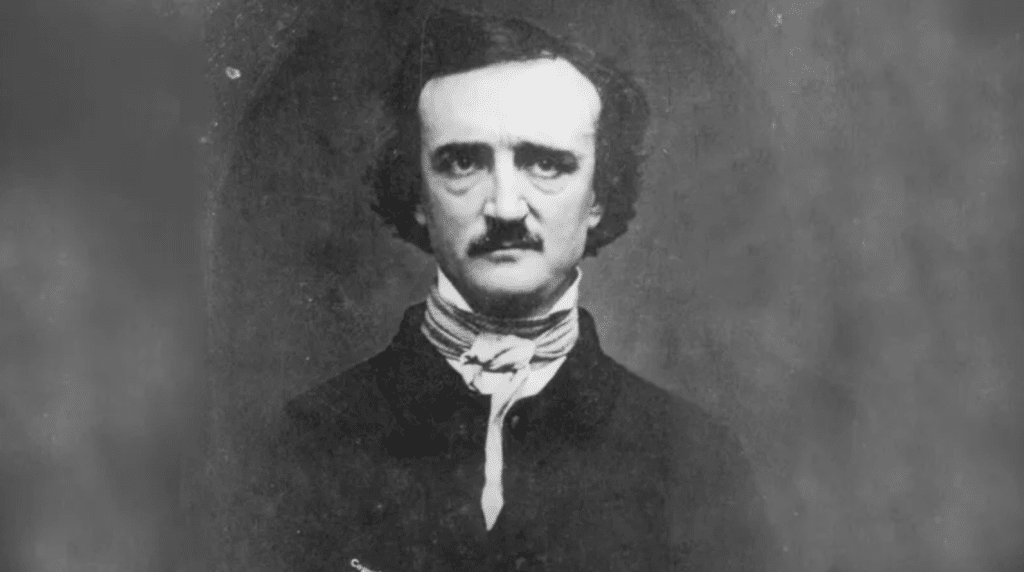
FB
Not dissimilar at all to Alice. I think that's really relatable and answers the question we often get from executives “Why now?” Given how chaotic the world feels, it's great to deal with stories that are realistic to the anxiety that kids feel, whether it's the various wars they're reading about or the climate and the fact that there's nothing they feel like they can do about it. I've noticed that with my kids. So stories that are thematically similar to what you're talking about answer that question of why it's important.
JC
Thank you. I think we need this stuff. We live in a chaotic time and our art needs to reflect that. Thankfully, we're not the first people to have lived in a chaotic time so there are lovely things from the past.
FB
We’re also trying to get grounded in what's real. One of the things about Alice in Wonderland, if you look back on it, the question is “Is this a dream? Is this real?” Trying to parse out reality versus fantasy, facts versus fiction, which we're dealing with a lot of late. That sounds like a really exciting project.
JC
I'm working with a producer, Rick Mischel, who's wonderful, and we've teamed up with TeamTO which is a great French animation house.
FB
They're terrific. I love their animation.
JC
They’ve been amazing so far. Wonderfully French, which has been a great treat. On one of the first calls, the head of finance was just sitting 10 feet away from the camera stroking a cat. I was like, that's the kind of stuff we need. We're working with them and a director called Christian De Vita, who's an incredible director. He’s done a lot of Wes Anderson and Tim Burton stuff. We're working on putting together a packet for it and then going out and trying to sell it. It's been a great, great process and hopefully, it will lead somewhere.
FB
Fingers crossed. We'll want to check back in with you and certainly have you on the show when you need to promote it because it's coming out.
I'm curious about the romantic comedy genre. I would imagine that you know something about that and that it's been lacking. It's one of the staples and one of my favorite movie genres. Why do you think we've lost that?
JC
It’s a really tough question. My dad has made a lot of romantic comedies. That's his bag. It’s tough. I feel like there's very little to be learned from him because the truth about him is that he is literally the sappiest romantic person in the world. It is one hundred percent genuine. That's how he talks, thinks, and breathes. But I think it's a really tough thing. One thing, it's a genre that needs to keep changing. Action is action, and you need to develop it, but honestly, action holds up. But both romance and comedy are things that develop as humans develop. If you are romantic in the way people were romantic in the 1950s, you'll probably get arrested. If you tell jokes that were funny in the 50s, you are not getting laughs, I promise. I think these are things that need to keep being pushed and reinvented because, with both romance and comedy, it’s the feeling of something new. The feeling of being in love is, “I've never felt like this about a person before.”
FB
What about the formula of the meet-cute and the tension of “clearly they’re not getting along”?
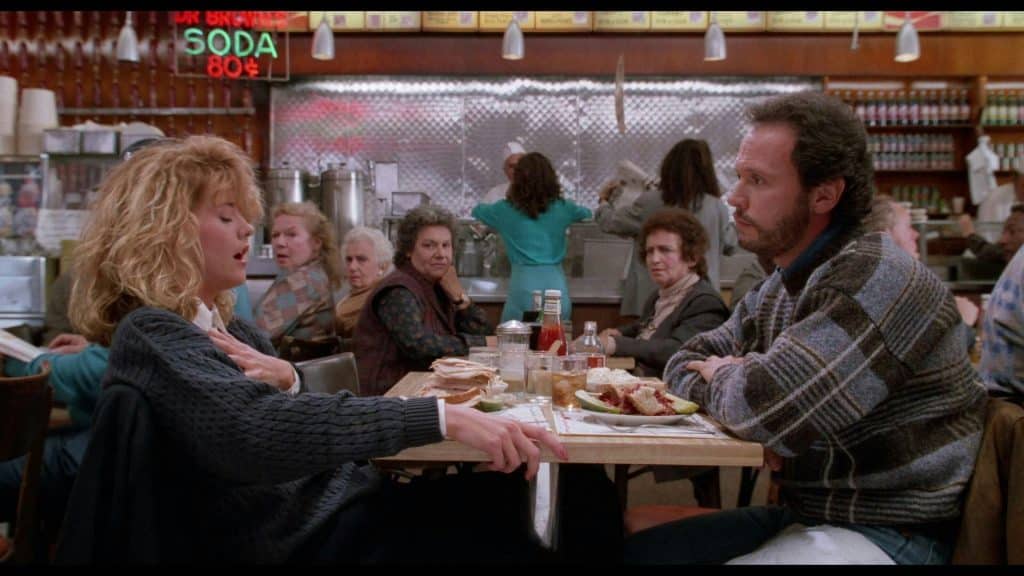
JC
We got used to the formulas. I think you can get used to the formula for an action film and it doesn't lessen it. But to me, When Harry Met Sally, feels radical. It’s weird. It cuts away to things, it's skipping time. I think romantic comedies have to feel unique because it should feel like meeting a person who's shifting your life. When we get used to the tropes, they can still be good if you want to make The Notebook. That’s proper romance. But I think with a romantic comedy, it has to feel fun and it has to feel fresh. That takes reinvention.
I think we're in a weird spot at the moment where no one's quite cracked it in a while. We're all just really familiar with the tropes. Everyone watched these films, everyone started acting like the people in these films. There are all these people pretending to be leading men from romantic comedies in the 90s, and 2000s. They're all on dating apps and it's horrible. When you go on a dating app you see 200 people's perceptions of who they are as a romantic lead. You watch everyone label themselves as the Hugh Grant type. Or, “I'm just a witty guy,” or “I'm the Billy Crystal, he doesn't care.” These things are so played out. You've got to find a way of making something feel weird and fresh and new. But that's really tough when we work in an industry that doesn't like taking chances on fresh and new stuff. Also, let's be real, romantic comedies live and die on the stars, on the chemistry. It’s tough to get a weird, new, fresh take that two stars are willing to sign on for and they happen to have chemistry. I think it's a really tall order.
FB
I agree with that. With all the dating apps, trying to find a way to make that at all romantic seems to be an impossibility. But also, somebody will do it and it'll break out and maybe there'll be a fresh take on it. But to your point, we have all sorts of other genres that people are spending more time on. I just miss the chemistry between two stars. The Notebook is something my daughter has gone back to and it works because both male leads are equally appealing. So she really has a dilemma that you can buy into. But that was based on a novel that was highly successful.
So the kinds of movies your dad wrote, were his own ideas, right? They weren't based on anything, your dad had a romantic idea. For example, your dad wrote Notting Hill, which was one of my favorites. There's an ongoing joke with my stepkids because whenever they say, “What should we watch?” I'm like, “Well, what about Notting Hill?” I've been saying it over and over and over so many times that they're dead. They look at me like, that is the dumbest joke ever. But it's a good movie. The chemistry between the two leads is so amazing.
JC
I remember once asking my dad, “Did you know when you were writing these films that ended up being big hits, that they were going to be hits?” He said, “Absolutely not at all. I really didn't feel it. I just wrote and tried to stay passionate about it.” Then he paused and went, “Actually not Notting Hill. I was sitting at home and I thought, ‘What if a movie star fell in love with a random guy?’ And I went, Oh, that's a hit.’”
FB
Also, you have Julia Roberts at the height of her stardom with that smile that would just crush anybody. Then you have Hugh Grant, who's a very contained performer and when those two come into contact, it's gold. It's wonderful.
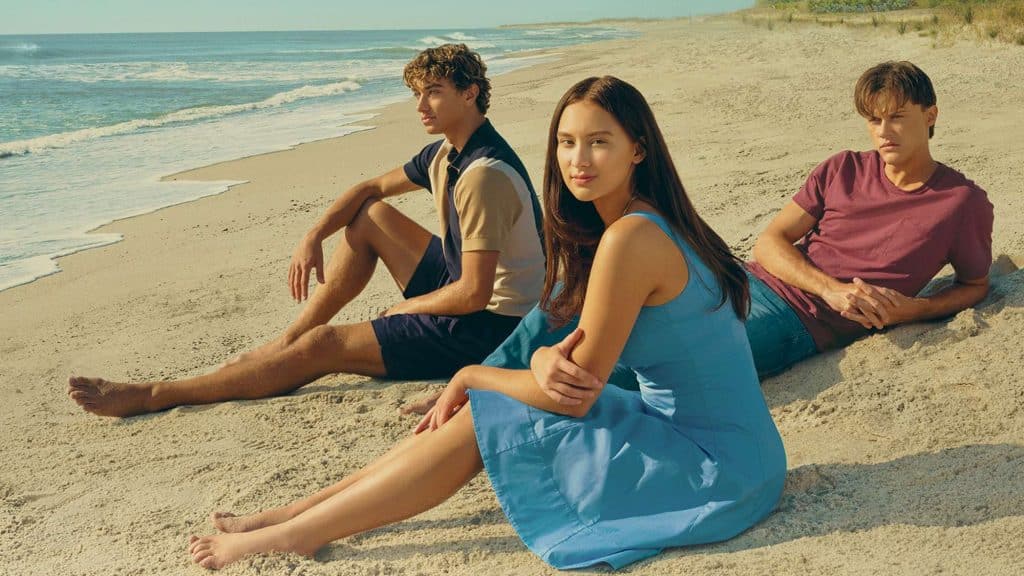
JC
I think one thing that's worth looking at is that romantic comedy is being explored in other mediums successfully like the Amazon show The Summer I Turned Pretty. It’s a smash hit for a younger audience and that's a rom-com, essentially. Even looking at someone like Taylor Swift, her songs are romantic, amusing, and comedic at points and that has gripped people. Obviously, people want these kinds of things. I think it'll just take someone breaking a new way of doing it in movies.
FB
Certainly in television. My daughter keeps telling me “Dad, it's one girl, two guys. That's what you need to do. Just focus on teenagers. Two guys, one girl. That's the formula.” She's watched all those shows you've talked about.
You have a funny story about your grandmother knowing the Liddells, Alice Liddell, which you have to share with us. That’s the first time I've come into contact with somebody whose family member knew the literal muse for all things Alice, for Alice's Adventures in Wonderland, for my books, for your writing The Brothers Wilde.
JC
It’s a bizarre and wonderful story. My grandmother, my mum's mum, Lady Jill Freud, is an amazing woman. She's 96 or 97 right now but World War II broke out when she was little, six or seven. She was living in London at that time with her family and they knew London was going to be bombed ruthlessly. So the British government enacted this thing they called “the evacuation,” which was an insane thing to happen. It could never happen nowadays. They literally took every child in London, took them to a train station, put a number around their neck, and put them on a train somewhere. They literally just shipped them off. When they arrived at these stations, people from the local towns came to the station and just went “Yeah, I can take two,” or “I run a farm, I can take two young boys to work there.” These kids just got rehoused for what was, at that point, an indefinite period of time.
So my granny was sent to Oxford and taken in by this family, the Butlers. Mrs. Butler was 100 and wasn't allowed to know there was a war on because they were worried it would scare her. But the house was run by these three Butler sisters. Two of them were university professors and they were three unmarried older women. They had been three of the kids that Lewis Carroll, Charles Dodgson, had taken down the Isis River in Oxford when they were younger. He'd done these long boat journeys down the Isis and he would read them stories every night. He would come up with stories and a lot of his early things were first tested out on these little girls. So my grandmother lived with the Butlers and they had these toys from their time with Lewis Carroll he had actually made by hand. He was a great craftsman and he had made these toys.
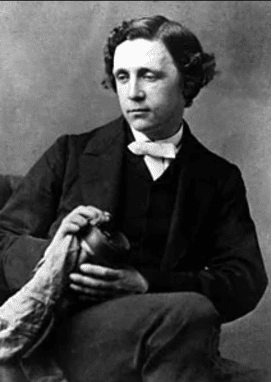
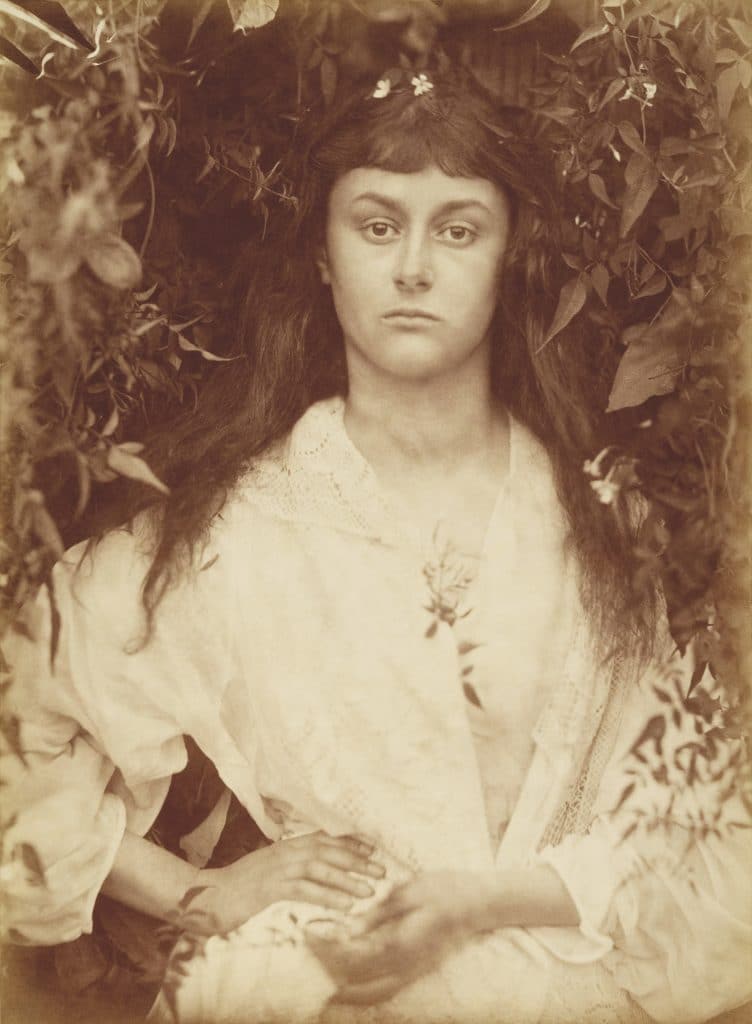
So every Sunday afternoon, my granny would be allowed to go into the drawing room and play with these Lewis Carroll's toys. It was this incredible time in Oxford where all these great writers and poets and people who were allowed to not fight in the war for academic reasons would write. So she lived with the Butlers and she met Alice Liddell. Alice was close with them and would come over and she was this sort of enigmatic figure known and revered around Oxford. She had tea with J.R.R. Tolkien. By her memory, he was a friendly guy.
So it was just this amazing time she was around Oxford and absorbing it. But also it was a time of war and chaos and people dying. When she talks about it it's this very mixed feeling of this beautiful time but so underpinned with fear.
FB
Was she there for the entire war?
JC
She was there for the entire war pretty much I believe. She was there for five years of the war. By the time the war ended, she was 16-17 and had been at C.S. Lewis' house for a bit and she stayed on to manage his estate for another year or two, I believe. Then at the end of that, she was accepted into RADA, the Royal Academy of Dramatic Arts, but couldn't afford to go and C.S. Lewis paid for her entire education. He covered it and she went on to become an early movie actress.
FB
What an amazing story and an amazing life.
JC
At that time in Oxford, there were so many incredible people, incredible minds all talking to each other. These were discrete authors. They all knew each other and they had writing groups.
FB
Could you imagine those writing groups? Wow, that would have been intimidating.
JC
“Yeah, I don't know if this White Rabbit character is really working for me.”
FB
“I don't think a closet is where you want the kids to go through. No one is gonna buy that.” The video you sent me of your grandmother, what's that from?
JC
She’s an incredible woman with incredible stories. A few years ago, I sat her down and we talked through her life and everything she'd done. It was a really wonderful experience. It was something I wanted to do, obviously to have the footage, but also it is such a privilege to get to talk to someone who's lived through wars and everything. I mean, ninety-seven is a lot of years.
FB
You’re very fortunate in terms of being surrounded by so many creative minds and creative family members and having a template on which you can base your creative aspirations. It's been really delightful to listen to you articulate what you've experienced so far, in your life and I really, I really appreciated you working on this project. I didn't know you very well and you delivered. I think our listeners are really going to enjoy hearing this.
JC
They're good, fun people. There’s a quote from a Madness song written on our wall at home that says, “There's always something happening and it's usually quite loud.” That summed up our family well.
FB
That's great. I hope you'll come back when your show is produced.
JC
Thank you so much for having me. This was such an absolute treat for the day and just fun to get into all this and chat about comedy and things
FB
Thanks a lot, Jake. Bye.
For the latest updates & news about All Things Alice, please read our blog and subscribe to our podcast!